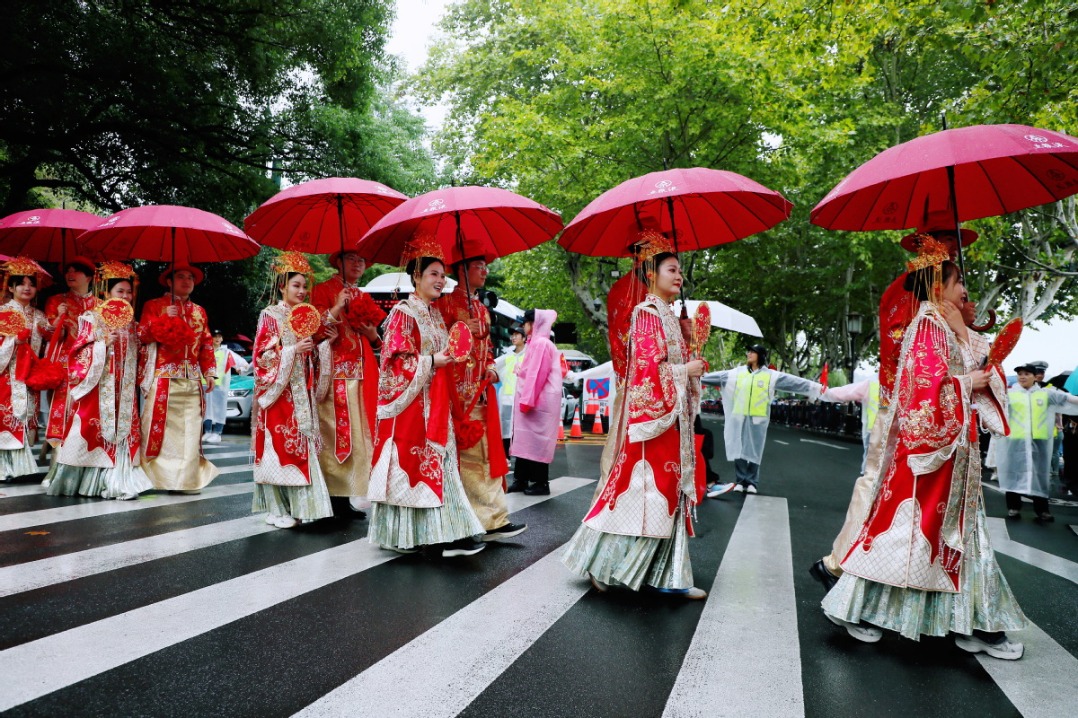US' reckless moves on Taiwan highly risky


Since US House Speaker Nancy Pelosi’s visit to Taiwan was widely criticized and strongly condemned by Beijing, many thought the United States would stop further muddying the waters of the Taiwan Straits. Yet the US continues to make trouble across the Straits as the sailing of two guided-missile cruisers, the USS Chancellorsville and the USS Antietam through the Straits on Sunday shows.
Such provocative moves show that the US continues to hollow out the one-China principle, and thus risks triggering a conflict. Especially because the Chinese military is on high alert and ready to thwart any US move to change the status quo across the Straits.
The US has been challenging China’s sovereignty and territorial integrity, as well as core interests by escalating tensions across the Straits while claiming to follow its one-China policy, which is different from the one-China principle adhered to by China.
According to its one-China policy, the US “acknowledges” rather than “recognizes” China’s position in both the Shanghai Communique and the Joint Communique on the Establishment of Diplomatic Relations that there is but one China in the world, Taiwan is an inalienable part of China’s territory, and the Government of the People’s Republic of China is the sole legal government representing the whole of China.
After the establishment of diplomatic ties between Beijing and Washington, the US Congress passed the Taiwan Relations Act and continued to sell so-called “defensive” weapons to Taiwan, violating the promise it made in the Joint Communique on the Establishment of Diplomatic Relations — that the US citizens will maintain cultural, commercial and other relations unofficially with Taiwan residents.
Yet the Ronald Reagan administration agreed to the six points Taiwan proposed in July 1982: the US would not set a date for terminating arms sales to Taiwan; not alter the terms of the Taiwan Relations Act; not consult with Beijing in advance before making decisions on arms sales to Taiwan; not mediate between Taiwan and Beijing; not alter its position on the “sovereignty” of Taiwan; not pressure Taiwan to enter into negotiations with Beijing; and not “formally recognize Chinese sovereignty” over Taiwan.
On the other hand, former US president Bill Clinton added the “three no’s” principle to the US’ China policy: the US does not support “Taiwan independence”; or “one China, one Taiwan” or “two Chinas”; or Taiwan’s membership in any international body whose members are sovereign states.
This shows that the US doesn’t explicitly support cross-Straits reunification and, instead, says Taiwan’s political status is unclear and uses this fact as a bargaining chip against Beijing, and that its Taiwan policy is part of its policy toward Beijing.
As such, the US will not support the independent forces on the island when Sino-US ties are cordial, but when bilateral relations sour, it will not only support the separatists but also stir up trouble in the Straits in the name of freedom of navigation.
The problem is that even though the US’ efforts to embarrass the Chinese government and provoke the Chinese people by exploiting the cross-Straits situation may help it realize some of its political goals in the short term, but they will damage Sino-US relations, even trigger a conflict.
For instance, Pelosi’s widely condemned trip to the island could help the Democrats win some seats in the midterm elections in November but, as a single incident, it has already dealt the worst blow to bilateral ties since the collision between Chinese and US navy planes over the South China Sea in 2001, which could cost the US dear.
Washington must understand that the Taiwan question is the most sensitive issue in Sino-US relations, and maintaining peace and stability in the Straits is vital to the common interests of both countries.
Although committed to peaceful reunification, China will not sit idle by while pro-independence forces on the island, with the help of certain Western politicians, undermine China’s sovereignty. It will use all necessary means to safeguard its sovereignty and territorial integrity.
It is important for Washington to understand that once a conflict starts, it will be very difficult to stop it. Washington may have labeled China as a strategic competitor, but the competition should be peaceful and be confined to trade and economics. If the US continues to interfere in China’s internal affairs, the situation could worsen further, prompting China to take necessary countermeasures, which would be good for neither side.
The US’ policy toward Taiwan is highly influenced by its domestic politics. But to win some brownie points in their one-upmanship game at home and perhaps flex some military muscles overseas, US politicians should not play with fire by interfering in the Taiwan question, making their own people, as well as those across the Straits, pay for their reckless actions.
The author is a researcher at the National Academy of Development and Strategy and a professor at the School of International Studies, Renmin University of China.
The views don’t necessarily represent those of China Daily.


































